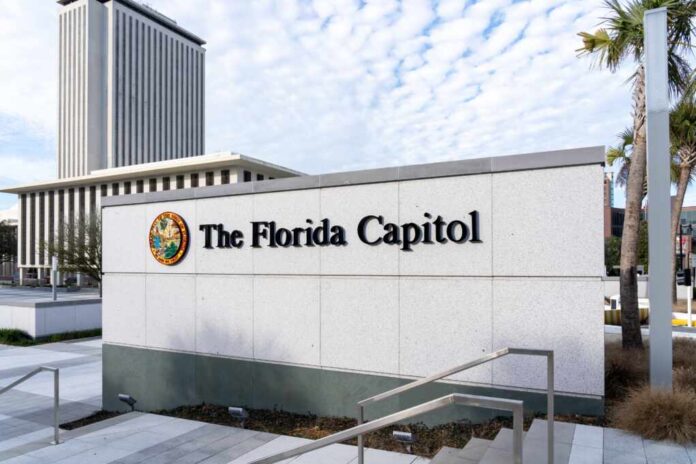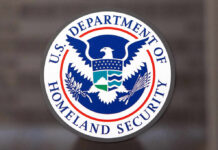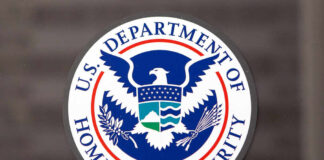
Gov. Ron DeSantis (R-FL) recently signed legislation that seeks to push back against illegal immigration through state mandated penalties for migrants who enter the country unlawfully.
The governor signed Senate Bill 1036, House Bill 1451 and House Bill 1589. Each piece of legislation furthers the Sunshine State’s efforts to discourage illegal immigration.
Last year, I signed the toughest anti-illegal immigration legislation in the country. Today, I signed three more bills to build on the work we have done to protect Floridians from the impacts of the border crisis. pic.twitter.com/oZHpYvyzFR
— Ron DeSantis (@GovRonDeSantis) March 15, 2024
Senate Bill 1036 declares that individuals who commit “unlawful reentry into the United States” following deportation are subject to more strict felony charges. Specifically, it will increase the felony classifications—making a third-degree charge with potential for five years in prison a second-degree classification, which could lead to a 15-year jail sentence. Senate Bill 1036 will become effective on Oct. 1, 2024.
House Bill 1451 adds to the heightened felony charges by barring localities in Florida from “accepting ID cards issued to illegal aliens by other jurisdictions.” This expands upon current state law which prohibits the distribution of government IDs to migrants. Additionally, DeSantis signed House Bill 1589, which raises the damages incurred on illegal immigrants who “operate a vehicle without a driver’s license.”
Both House Bills are set to go into effect on July 1, 2024.
During a press conference that took place following his approval of the new legislation, DeSantis said that the state of Florida does “not tolerate illegal immigration” and criminal acts committed by migrants who have crossed into the country unlawfully, despite the Biden administration having “failed” to “secure our southern border.”
He also explained to the public that his efforts to crack down on illegal immigration in Florida has resulted in the interception of migrants from Haiti, who have traveled to America’s East Coast by boat and been apprehended by officials with the state’s Fish and Wildlife agency. In February, officials took in 25 illegal migrants who were traveling with firearms and drugs, all of whom were transferred to the jurisdiction of the Coast Guard in order to be deported.
While civil unrest in Haiti reaches a tipping point, threatening to result in a greater influx of migrants fleeing their country and seeking refuge in Florida, DeSantis warned these refugees not to attempt the “hazardous journey.”
He explained that his priority is to “keep the people of Florida safe,” adding that Haitian migrants are more than likely to be returned to their homeland by authorities if they try to enter the United States illegally through Florida.


















